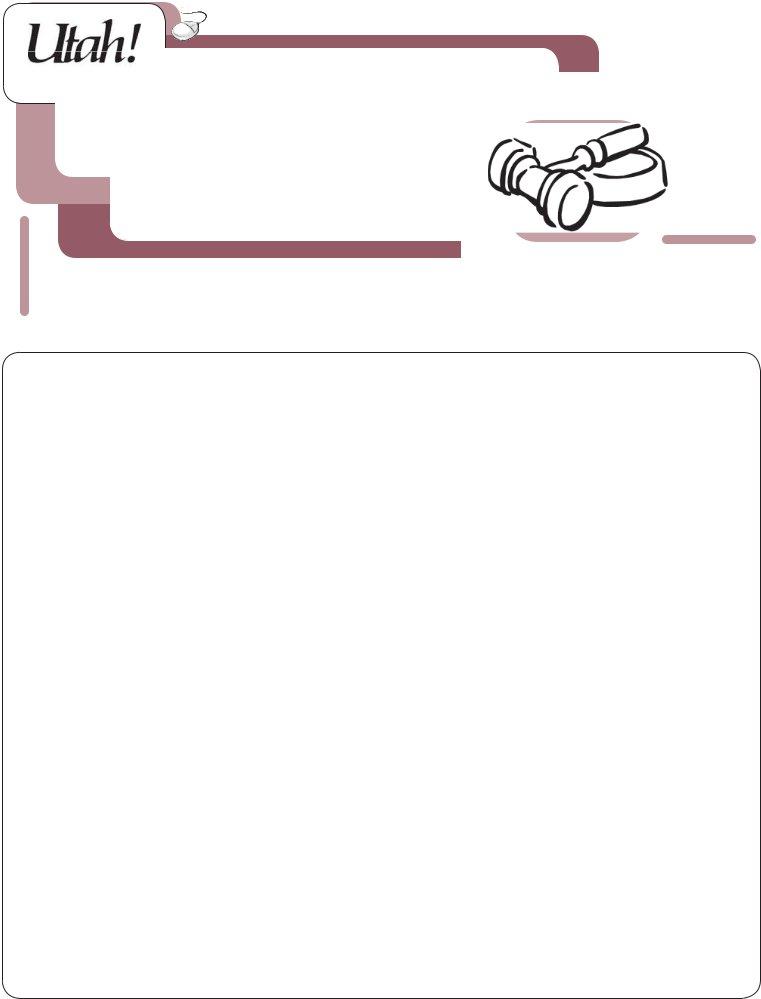Facing challenges with tax penalties and interest demands from the Utah State Tax Commission can seem daunting, but there's a clear path set by the Commission to request waivers for reasonable causes. The commission, operating out of their office in Salt Lake City, Utah, is ready to help taxpayers through multiple contact methods, including phone numbers 801-297-6299 and 1-800-662-4335, ext. 6299, and a dedicated email address for accommodations under the Americans with Disabilities Act. The process for requesting a waiver is grounded in the principles outlined by the Utah Code and the Tax Commission Rule, focusing on providing taxpayers with an avenue to argue their case for the waiver or reduction of penalties and interest based on various reasonable causes. These include timely mailing issues, serious illness, unavoidable absence, natural disasters, reliance on erroneous Tax Commission information, and more. Taxpayers are required to pay the complete tax due for the period in question before requesting a waiver and must provide supporting documentation for their claim. The commission also outlines specific scenarios, such as first-time filers or situations involving bank errors or embezzlement, under which waivers might be granted. Additionally, the Text Commission offers a unique opportunity for pass-through entities to request waivers under certain conditions. It's crucial for taxpayers to understand that ignorance of the law generally doesn't qualify as a reasonable cause, and each request is evaluated on its merits, emphasizing the importance of thorough documentation and adherence to guidelines.
| Question | Answer |
|---|---|
| Form Name | Phone Number For Utah State Tax Commission Form |
| Form Length | 2 pages |
| Fillable? | No |
| Fillable fields | 0 |
| Avg. time to fill out | 30 sec |
| Other names | form 17 state of utah, utahpublication17, utah publication waivers, waivers utah gav |

tax.utah.gov
Waivers
Reasonable Cause
Utah State Tax Commission
210 North 1950 West
Salt Lake City, Utah 84134
General Information
The Tax Commission may waive or reduce penalties or inter- est for reasonable cause. See Utah Code
You may request a waiver online or by filing a written applica- tion with supporting documentation. You must show a good reason why the Tax Commission should waive or reduce any penalties or interest.
You have a right to appeal if we deny your request. See Administrative Procedures Act (Utah Code
Waiver Procedures
We will consider a request for waiver of any penalties or interest when:
•you request a waiver online (see below) or by email, or provide a signed waiver request with supporting docu- mentation,
•the total tax owed for the period(s) has been paid,
•the tax liability is based on a return you filed with the Tax Commission (not on an estimate), and
•you have not already received a waiver review for the same period(s).
When we receive the waiver request, we will:
•review the request;
•notify you if we need more documentation; and
•review the account history for prior waiver requests, taxpayer deficiencies, and evidence for your claim.
It is harder to get interest waived than penalties because you must prove the Tax Commission gave you incorrect information or made an error that caused you to file or pay late.
PUBLICATION 17
REVISED 2/18
If you need an accommodation under the Americans with Disabilities Act, email taxada@utah.gov, or call
Online Request
(only for tax types available through TAP)
You can request a waiver online through Taxpayer Access Point (TAP). After accessing TAP follow these steps:
1.Go to TAP.utah.gov. Businesses must login.
2.Click Request Payment Plan or Waiver.
3.Select P&I Waiver.
4.Choose the tax account and follow the instructions.
Reasonable Cause
We may find a reasonable cause to waive penalties if you can prove any of the following:
A.Timely Mailing: You mailed your return and payment by the due date but the post office did not deliver it on time. (You must provide documentation).
If you cannot document a post office error, we may waive the penalties if you can show:
1.an excellent history of compliance;
2.sufficient funds were in the bank on the date of payment
3.the check was written in numerical order; and
4.any proof that the return or payment was mailed timely.
B.Wrong Filing Place: The return or payment was filed on time, but was delivered to the wrong office or agency.
C.Death or Serious Illness: The taxpayer’s death or serious illness (or that of an immediate family member) caused the delay. This also applies to a business, trust or estate, if the individual (or an immediate family member) had sole authority to file the return. The death or illness must have occurred on or immediately before the return due date.
D.Unavoidable Absence: The person with sole respon- sibility to file the return was out of state due to circum- stances beyond his or her control.

E.Disaster Relief: A federal or
F.Reliance on Erroneous Tax Commission Information: You received incorrect advice from the Tax Commission that led to the underpayment, late payment or late filing. This does not apply if you gave the Commission inac- curate or incomplete information. Proof may be based on written communication from the Tax Commission or verbal communication (include dates, times and names of Commission employees who provided the information). We may excuse a failure to comply if you can prove you requested the necessary tax forms timely but the Tax Commission did not provide them timely.
G.Tax Commission Office Visit: You visited a Tax Com- mission office for information or help in preparing the re- turn before the due date, but Tax Commission employees were not there during Tax Commission business hours to help you.
H.Unobtainable Records: You were not able to get re- cords to determine the tax due, for reasons beyond your control.
I.Reliance on Competent Tax Advisor: You gave all your tax information to a competent tax advisor who gave you incorrect advice, failed to file a timely return on your behalf, or failed to make a timely payment on your behalf.
You must file returns. Relying on a tax advisor to prepare a return does not automatically create reasonable cause for failure to file or pay. You must give a tax advisor your tax information before a return’s due date. You must show you used normal care and diligence when you decided whether to seek further advice.
J.First Time Filer: You were late in filing the first return you were required to file, but paid the tax within a reasonable time. The Tax Commission may also waive penalties on the first return after a filing period change if you filed and paid in a reasonable time.
K.Bank Error: Your bank made an error in returning a check, making a deposit or transferring money. Provide a letter from your bank explaining the error.
L.Employee Embezzlement: An employee(s) embezzled tax funds and you couldn’t get funds from any other source.
M.Recent Tax Law Change: You didn’t file or pay because you were not aware of a recent tax law change. You must prove you could not be expected to know of the change.
The Tax Commission considers your recent account history when we decide whether or not to waive a penalty. We also consider whether other tax returns or reports are overdue when you request the waiver.
Other factors may affect whether we find reasonable cause. These include:
•whether the Tax Commission had to take legal means to collect the taxes
•whether you caught and corrected your own error(s)
•the length of time between the event and the filing date
•typographical or other written errors, and
•other clearly supported extraordinary reasons for filing or paying late which show reasonable cause and an inability to comply.
In most cases, ignorance of the law, carelessness or for- getfulness does not create reasonable cause. Intentional disregard, evasion or fraud does not constitute reasonable cause under any circumstance.
Each case is judged on its individual merits.
Waiver Request
A
•the
•the
The waiver request must include all
See Utah Code
This publication is to be used as a guideline only, and does not reflect the complete
standards for waiver of penalty and/or interest.
17
PAGE 2